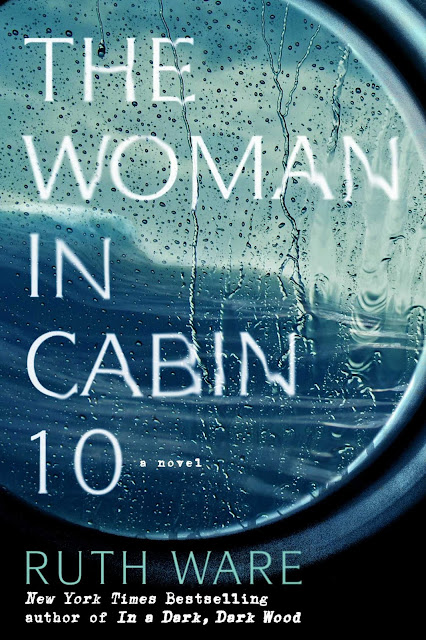

The Final Seven, by Erica Spindler (Doubleshot Press, 2016); and Fifteen Minutes to Live, by Phoef Sutton (Brash Books, 2015).
(Hat tip to Lee Goldberg.)


 that he’d been diagnosed with a “very aggressive form” of cancer. “Looks bad,” he added. “Love to you all.” That note—which elicited a flurry of sympathetic comments from his fans and friends—was followed in short order by this still more worrisome one:
that he’d been diagnosed with a “very aggressive form” of cancer. “Looks bad,” he added. “Love to you all.” That note—which elicited a flurry of sympathetic comments from his fans and friends—was followed in short order by this still more worrisome one:
Hey, blog fans. I’m out of the hospital after being poked, prodded, tested. and humiliated. I’m in much worse shape than when I went in. It’s a long story. Next week I’ll try to get into [the University of Texas] M.D. Anderson [Cancer Center]. The outlook isn’t brilliant for the Mudville Nine. I might not be posting here again, so I want to say now how moved I’ve been by your comments. You guys are the best. Even if we’ve never met in person, you are truly my friends. Love to you all.Then, on Tuesday of this week, Bill reported that he had been successful in scheduling his first appointment at M.D. Anderson for today, Thursday. No word yet on the results of his tests.
 and that he’ll be with us for a great deal longer. Borrowing a headline he’s often set atop posts having to do with remarkable turns of events, “I want to believe!”
and that he’ll be with us for a great deal longer. Borrowing a headline he’s often set atop posts having to do with remarkable turns of events, “I want to believe!”






Following the success of John le Carré’s spy novel adaptation The Night Manager, Paramount TV is tackling another of the author’s works for the BBC, The Spy Who Came in from the Cold (Le Carré’s 1963 breakthrough novel). The book tells the story of Alec Leamas, a veteran British spy tasked with bringing down one of the most senior figures in the East German Intelligence Service, and is regarded a classic of its genre that was made into a film in 1965 with Richard Burton in the lead role.Deadline Hollywood notes that a film company called The Ink Factory “will finance and produce [the mini-series] in association with Paramount TV and Character 7.” Ink Factory’s Stephen Cornwell and Simon Cornwell, and Character 7’s Stephen Garrett—all of whom worked as executive producers on The Night Manager—will collaborate again on this TV version of The Spy Who Came in from the Cold. No broadcast date has yet been announced.
First, he says, it was that the B. Dalton and Waldenbooks outlets in every mall would kill local stores. Then, the big boxes like Barnes & Nobles and Borders. After that, the deep discounters like Crown Books. And onward to mass merchandisers like Walmart and membership stores like Costco. And, finally, along came Amazon, he says, followed by Amazon selling e-books.Freelancer Glenn Fleishman’s article could have benefited from more assiduous copy editing, but it’s still worth reading.
But after years of shrinking sales and locations, indie stores have seen a slightly accelerating tick upwards since 2009 in new businesses, more stores, a bigger slice of the retailing pie, and a growth in overall revenue. Teicher cites several reasons, but one of them is the same wave of technology that, the story was supposed to go, would drown non-chain stores once and for all.

 the name Theodore Dreiser puts you in a whistling disposition, then the atmospheric and beautifully written Sidewalk Caesar, by Donald Honig (originally published in 1958, but later reissued as The Operator), belongs in your medicine cabinet right next to the Xanax.
the name Theodore Dreiser puts you in a whistling disposition, then the atmospheric and beautifully written Sidewalk Caesar, by Donald Honig (originally published in 1958, but later reissued as The Operator), belongs in your medicine cabinet right next to the Xanax. and allows readers to eavesdrop on interior monologues that succeed in duplicating how a character with limited education and expectations might sound.
and allows readers to eavesdrop on interior monologues that succeed in duplicating how a character with limited education and expectations might sound.Emily Brontë, Freud, and Flannery O’Connor. That’s a tough, tough crew. I’m not getting away with anything at that table. There will definitely need to be martinis.You will find the whole Book Review piece here.
 Max Allan Collins’ Quarry, which is currently being developed for television.” News-a-Rama adds that Triggerman—which will debut in stores on October 5, “is an operatic Prohibition-era mini-series,” while Peepland—scheduled to be available a week later—is “a semi-autobiographical neo-noir mini-series with a punk edge set in the seedy Times Square peep booths of 1980s New York City.” In his blog, author Collins explains that “no artist has been selected” for his Quarry tale, “and I probably won’t start writing for two or three months; the graphic novel will likely be called Quarry’s War and will deal more directly with his Vietnam experiences than I’ve ever done in the novels.” It’s been many years since I was a regular reader of comic books, but these Hard Case releases are definitely of interest to me, if only because I know some of the writers involved. Also, the issues I’ve seen boast beautiful covers, one of which is shown on the right.
Max Allan Collins’ Quarry, which is currently being developed for television.” News-a-Rama adds that Triggerman—which will debut in stores on October 5, “is an operatic Prohibition-era mini-series,” while Peepland—scheduled to be available a week later—is “a semi-autobiographical neo-noir mini-series with a punk edge set in the seedy Times Square peep booths of 1980s New York City.” In his blog, author Collins explains that “no artist has been selected” for his Quarry tale, “and I probably won’t start writing for two or three months; the graphic novel will likely be called Quarry’s War and will deal more directly with his Vietnam experiences than I’ve ever done in the novels.” It’s been many years since I was a regular reader of comic books, but these Hard Case releases are definitely of interest to me, if only because I know some of the writers involved. Also, the issues I’ve seen boast beautiful covers, one of which is shown on the right. These stars having thus aligned, I now have The Man from U.N.C.L.E. stored in my TV queue for imminent viewing.
These stars having thus aligned, I now have The Man from U.N.C.L.E. stored in my TV queue for imminent viewing.





 background to his latest book, a biography titled Cheyney Behave!: Peter Cheyney: A Darker World, plus some period context for Cheyney’s storytelling. Much of the piece is devoted to the Dark Series, which featured players such as Michael Kane, Johnny Vallon, Shaun O’Mara, and of course, Peter Everard Quayle, the operations director for a UK intelligence unit combating Nazi agents.)
background to his latest book, a biography titled Cheyney Behave!: Peter Cheyney: A Darker World, plus some period context for Cheyney’s storytelling. Much of the piece is devoted to the Dark Series, which featured players such as Michael Kane, Johnny Vallon, Shaun O’Mara, and of course, Peter Everard Quayle, the operations director for a UK intelligence unit combating Nazi agents.)


 international battle had eroded moral restraints, the totality of war bringing the urgent licentiousness of the front lines closer to home. In the words of one American soldier: “We were young and could die tomorrow.”
international battle had eroded moral restraints, the totality of war bringing the urgent licentiousness of the front lines closer to home. In the words of one American soldier: “We were young and could die tomorrow.”





 Send Us News:
The Rap Sheet is always on the lookout for information about new and soon-forthcoming books, special author projects, and distinctive crime-fiction-related Web sites. Shoot us an e-mail note here.
Send Us News:
The Rap Sheet is always on the lookout for information about new and soon-forthcoming books, special author projects, and distinctive crime-fiction-related Web sites. Shoot us an e-mail note here.
Text © 2006-2024 by The Rap Sheet or its individual contributors.
Rap Sheet logo by David Middleton.
 Check out our selection of more than 400 works of mystery, crime, and thriller fiction—from both sides of the Atlantic—scheduled to reach bookstores between now and the beginning of June. Click here.
Check out our selection of more than 400 works of mystery, crime, and thriller fiction—from both sides of the Atlantic—scheduled to reach bookstores between now and the beginning of June. Click here.
 The Rap Sheet has now been around long enough that some older posts may include links to stories or Web sites that no longer exist. If you encounter such broken links, try searching for the original material via the Wayback Machine, an invaluable archive of digital content.
The Rap Sheet has now been around long enough that some older posts may include links to stories or Web sites that no longer exist. If you encounter such broken links, try searching for the original material via the Wayback Machine, an invaluable archive of digital content. Back in the fall of 1971, NBC-TV introduced its most successful “wheel series,” the NBC Mystery Movie. Look for our anniversary posts here.
Back in the fall of 1971, NBC-TV introduced its most successful “wheel series,” the NBC Mystery Movie. Look for our anniversary posts here.
 In honor of The Rap Sheet’s first birthday, we invited more than 100 crime writers, book critics, and bloggers from all over the English-speaking world to choose the one crime/mystery/thriller novel that they thought had been “most unjustly overlooked, criminally forgotten, or underappreciated over the years.” Their choices can be found here.
In honor of The Rap Sheet’s first birthday, we invited more than 100 crime writers, book critics, and bloggers from all over the English-speaking world to choose the one crime/mystery/thriller novel that they thought had been “most unjustly overlooked, criminally forgotten, or underappreciated over the years.” Their choices can be found here.